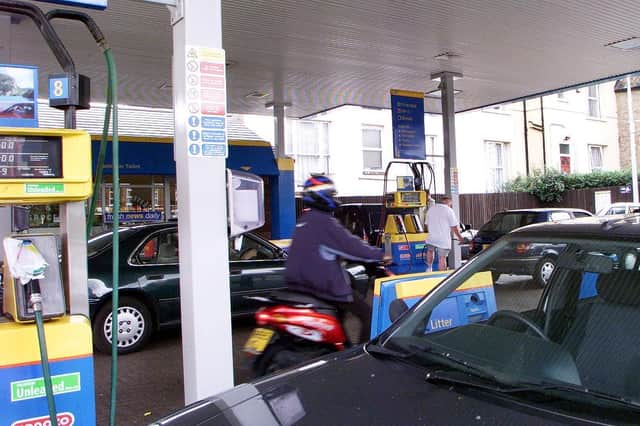JOHN GRIFF: We must unite again to beat ‘financial pandemic’


There’ll be more struggling as of tomorrow too, when the government’s energy price cap changes and we all pay more – substantially more – for our electricity and gas.
It won’t be the only price rise in the sector this year either, with further increases anticipated in October, just as seasonal temperatures start to drop.
Advertisement
Hide AdAdvertisement
Hide AdIf anticipated average household prices rise to £3,000 per annum, what next for an already fragile economy?
It’s not only energy prices on the move. Petrol and diesel prices continue to rise despite Rishi Sunak apparently begging the fuel companies to pass on his own tax revenue cut at the pumps.
Some did, some didn’t and some are apparently thinking about it. Electric cars are too expensive for the masses to be able to afford them and, in any case, Britain doesn’t have the infrastructure to run them, neither will it for years to come.
Wage rises are lagging behind inflation, which is increasing at way beyond the government’s target, so the gap between income and expenditure is widening and evermore quickly.
Advertisement
Hide AdAdvertisement
Hide AdAdd in the rising costs of care for the elderly (presumably set to leap up as care companies pass on increases in their own operating costs), plus the difficulty young people face in getting on to the property ladder for the first time, and you’d be forgiven for thinking that we’re on the way back to the age of the horse and cart during the day and candlelight at night in the evening, but without the romance.
And that’s before you add in the economic consequences arising from the invasion of Ukraine by the forces of Vladimir Putin.
Consequences, I am certain, there will be.
For all the bleakness of the current situation we’re facing, I’ve been impressed by the resolve of people who I’ve spoken to in the past few days.
Hosting the Drive Show on BBC Radio Northampton for part of the week has given me an opportunity to talk to complete strangers who seem to be adopting the ‘ride it out – life goes on’ mentality.
Advertisement
Hide AdAdvertisement
Hide AdMany have told me about tips they learned from their parents and grandparents about making do in harsh times. With those tips has come a renaissance of the kind of spirit that I imagine suffused the post-World War Two years.
Despite it being the 21st century and the degree of technological advancement which we benefit from, but take too much for granted, there are parallels which we could perhaps be learning from anew.
As the most wasteful generation of humans ever to inherit the planet, it is for us to look to the lessons of the past, adapt and thrive again. A little financial introspection goes a long way; ask the local community groups which have for years been achieving financial alchemy by turning small grants of project money from charitable funding bodies into priceless provision for the people they aim to help.
On a macro basis we should be learning from their micro thrift. And just as we have supported each other during the coronavirus pandemic, perhaps now we need to support each other again during what looks like a developing economic pandemic.
Advertisement
Hide AdAdvertisement
Hide AdOf course, that cannot be solely on an individual basis. Whatever the indicators and levers, we need to reach out on an international basis, offering what we can in exchange for what we need.
Tougher times are coming. We need to accept them, tighten our belts once more and help each other out with our individual specialisms.
We have the assets... have we the will?